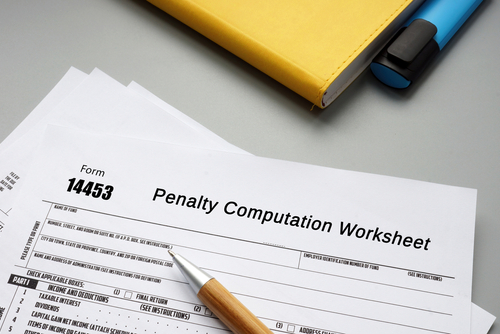

Failure to File Penalties
There is simply no way around it, skipping out on filing a tax return is going to cost you. Each type of return has its own penalty associated with it. For returns to be filed in 2024, the failure to file penalties are as follows.
Income Tax Returns
Failure to file within 60 days of the due date, the minimum penalty is $510 (up from $485 in 2023) and can increase depending on the circumstances – up to 100 percent of the taxes on the return.
Partnership Return
Failure to file a partnership tax return incurs a $245 penalty (up from $235 in 2023).
S-Corporation Return
Failure to file an S-Corporation return incurs a $245 penalty (up from $235 in 2023).
Beyond these simple financial penalties, things can get serious depending on the length of time a return has not been filed and the amount of past due taxes. This includes liens, levies and passport restrictions.
Passport Revocation or Denial
In cases of serious tax delinquency, defined as a tax debt of $62,000 or more in 2024, your application for a new passport can be revoked or denied renewal.
Liens
If a taxpayer fails to pay a properly assessed tax bill, the IRS can file a Notice of Federal Tax Lien. This type of lien puts creditors on notice that the federal government has legitimate claim over your property. This means that when you sell any of your property or assets, you can be forced to send the proceeds to the IRS.
Levies
Levies are the legal seizure of your property. Typically, any property can be levied to fulfill a tax obligation. There are exceptions for certain, small amounts of personal property such as provisions, furniture and other household personal effects, and business property needed to carry on a trade or business; but these are negligible thresholds (less than $12,000). Further, wages can be levied and are subject to a formula that calculates a maximum weekly amount.
In any case, a levy is the last resort of the IRS but is obviously something you want to avoid.
Conclusion
Paying penalties is no fun and no one wants to pay them. You may feel overwhelmed due to personal or business circumstances or other reasons, but the absolute worst thing you can do is to ignore your tax filing obligations. Even if you are late, the sooner you file versus burying your head like an ostrich the better – as it’s “better late than never” when it comes to the IRS.
The main lesson is that ignoring things won’t make them better.

